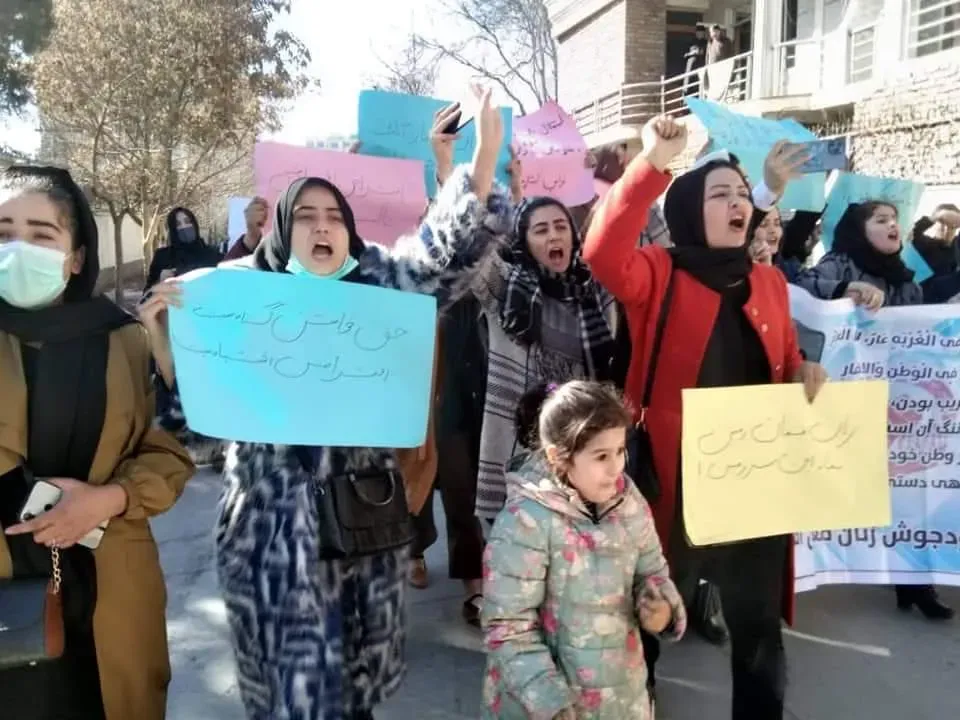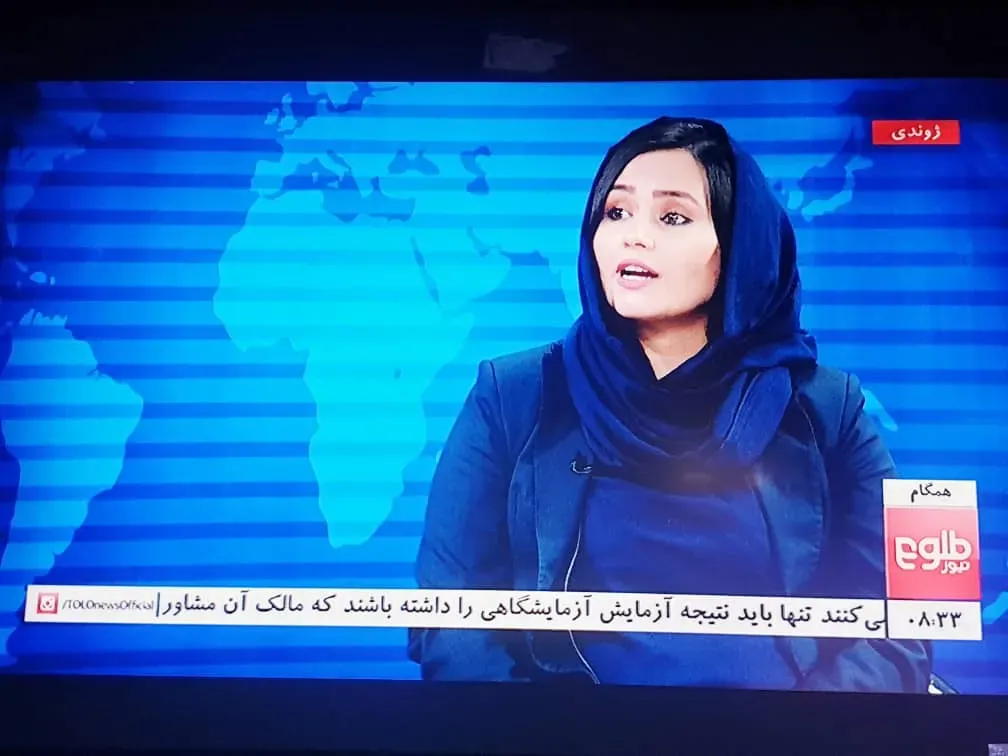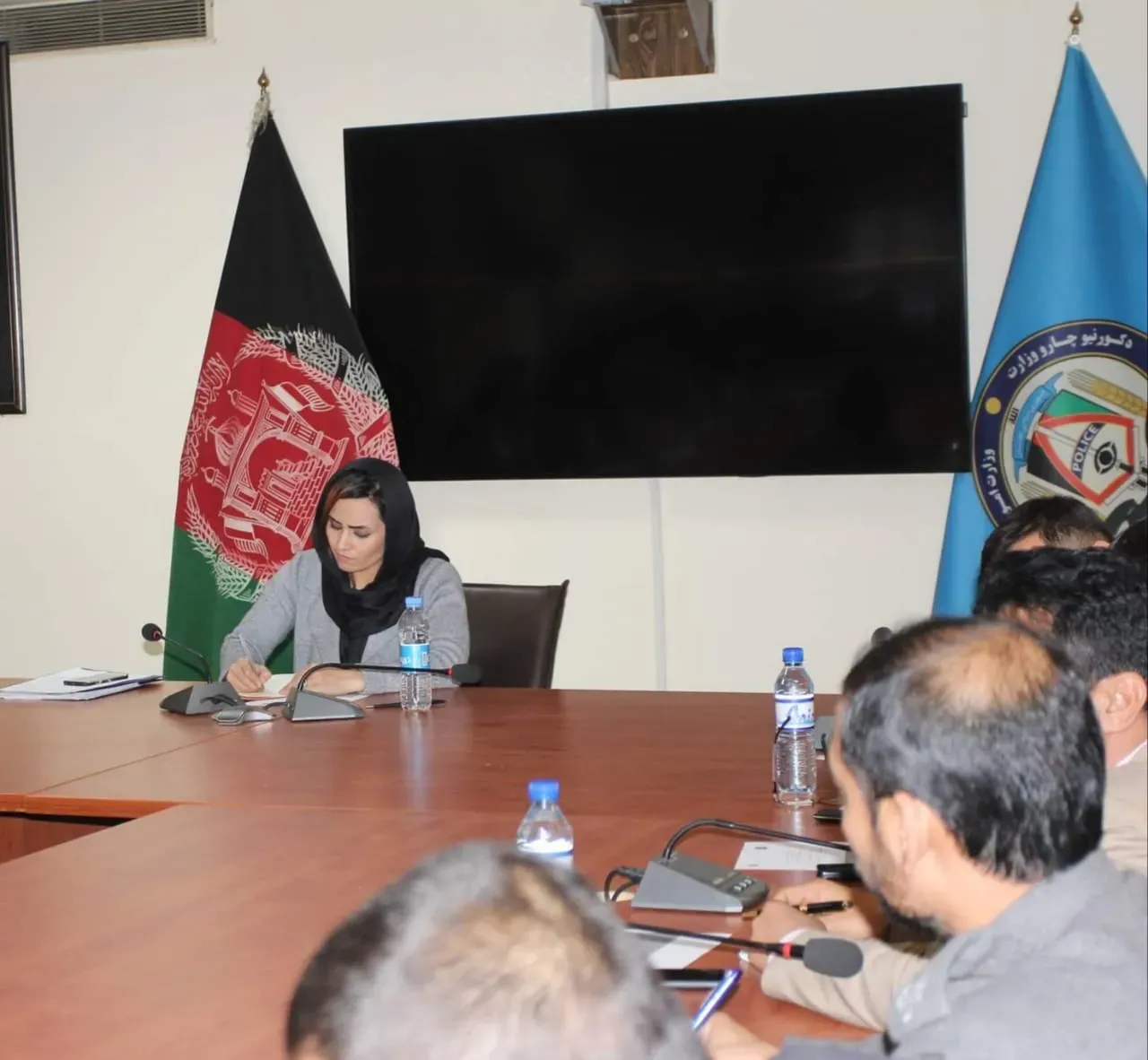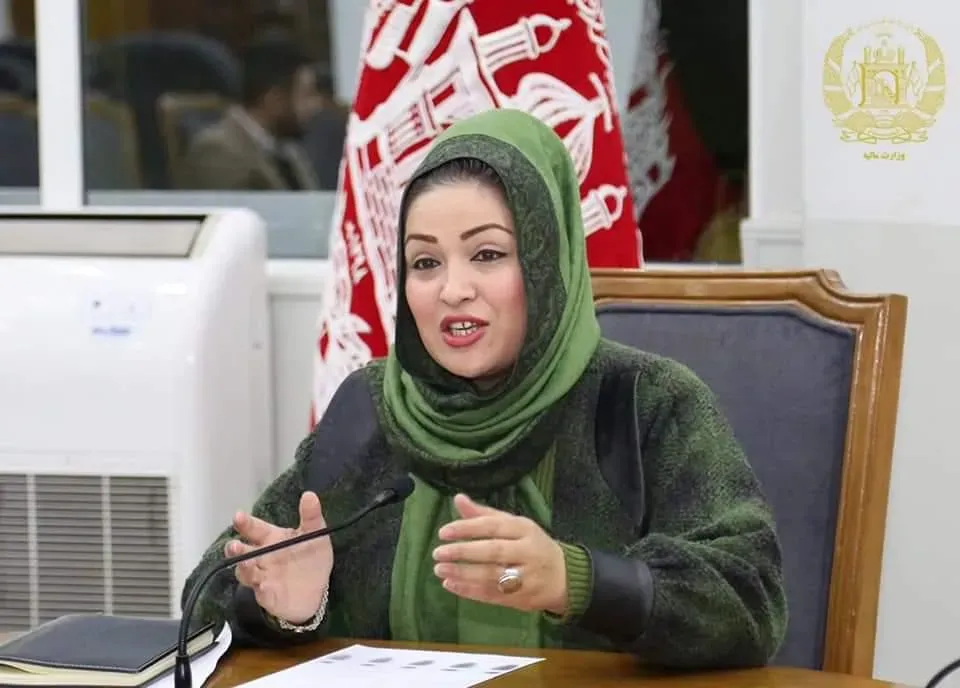
Amir, 32, a Tajik raised in Kabul, is a video journalist. He is currently struggling to make ends meet in Taliban-ruled Afghanistan, where there is no more freedom of the press.
“My life is in danger right now in Afghanistan and I am really afraid,” he said in a phone interview, just three weeks after his release from Taliban captivity. “I’m afraid if I start working again, I will be arrested again.”
His story is one of hundreds of Afghans who have been targeted, detained, and tortured by the Taliban. Amir’s name has been changed to protect his identity. He was detained for more than five months before his release from Taliban detention on the second anniversary of the Taliban takeover of Afghanistan on August 15, 2023.
From August 2021 onwards, the Taliban carried out hundreds of extrajudicial killings, according to reports published by the United Nations Assistance Mission in Afghanistan (UNAMA) and Human Rights Watch. They targeted, detained, and killed members of the former Afghan government, military, intelligence, police officials, political opponents, journalists, human rights activists, and civil society.

As a nonprofit journalism organization, we depend on your support to fund more than 170 reporting projects every year on critical global and local issues. Donate any amount today to become a Pulitzer Center Champion and receive exclusive benefits!
In the four years since the Taliban came to power, media access has been restricted and there has been a lack of accountability for ongoing human rights abuses, according to the U.N. High Commissioner for Human Rights Volker Türk. Despite international human rights investigations, Zabihullah Mujahid, a senior Taliban official and spokesperson, has denied allegations of revenge killings and torture. The Taliban’s policy of “general amnesty” is in effect, Mujahid said. Four people, including a journalist and a human rights activist, reported harrowing accounts of detainment and torture and said they were targeted by the Taliban in Afghanistan. Two women's rights activists also said they received death threats.
Amir worked for a television station in Afghanistan until February 2023. In late February, he said, he was at the office and took a break for the afternoon prayer when he got a call from a colleague. He was making his way back into the office and suddenly saw a vehicle of Taliban officials enter the complex. The Taliban officials barged into his office and beat him and kicked him, Amir said. They put a black plastic bag on his head, handcuffed him, confiscated his phone, and threw him into their vehicle, but didn’t say why they were arresting him or where they intended on taking him, he said.
“I was worried when I was reporting on the story that it is a sensitive topic and could be problematic for me,” Amir said of the reporting assignment that led to his arrest. “Before I was free to work and we had press freedom in this country, now no more.” Amir didn’t want to share the subject of his reporting assignment on the record, because it could identify him and possibly endanger his life once again.
For a week during his detention, Amir was beaten and interrogated by about four or five people at a time, he said. But, he was blindfolded, so he never saw what they looked like to truly know how many of them were there. During that first week, Amir said, he thought he would be killed. He didn’t think he would be released. For months, Amir’s family searched for him, thinking he was either killed or arrested. Since his release, he remains in Afghanistan, unemployed.
With the exception of Amir, the other three people who were interviewed safely fled and awaited opportunities for resettlement or asylum elsewhere. Two of them were able to successfully secure asylum in Canada and Germany.
Imad Dawran, 31, a Pashtun from Paghman, Afghanistan, was a human rights and education activist in Kabul. He said he was held in Taliban detention for two months because of his social media posts in support of girls’ education in Afghanistan.
During his career in Kabul, Dawran, who has a bachelor's degree in Pashto literature from Kabul University, worked with nongovernmental organizations and helped establish a standardized curriculum for nursery school through eighth grade in Afghanistan with Oxford University Press. He was also the chief editor of a Pashto literary magazine called Baheer.
On May 14, 2022, Dawran was in the 17th district of Kabul in a vehicle with his driver in the front and his uncle sitting next to him. A gray Toyota XLI pulled up in front of them. About four or five men with handguns came out of the vehicle, Dawran recalled. They opened his door, took him out, handcuffed, blindfolded him, and threw him into their car, he said.
“I was so confused, like am I getting kidnapped or arrested, what’s going on?” Dawran said in an interview in Pashto, his native language. “They were hitting and threatening me during the 20-minute drive to the location where I was detained.”
During his two-month detention, Dawran said, he was held at three different locations. He described the first location as a bathroom-sized room, where he was alone except for the one to two times the Taliban officials would come to interrogate and beat him. The officials had printouts of 50 of his Facebook posts, he said, and they would place each one in front of him, asking him to explain why he posted them.
“This is my country and it’s my right to speak up for my nation,” he said in one of his responses to the officials interrogating him. “My people have the right to live a good life, and there’s no logic in banning education for women and girls.” That first week, Dawran said, he felt like they would kill him.
At the second location, he was kept in a cell with three-four other people. The interrogations were just once a week, and they would beat him during the questioning, he said, but it was nothing like the daily physical violence at the first location. His ribs were broken and he could neither sit nor stand up without extreme pain, but was able to see a doctor and get painkillers, he said. Dawran was fortunate though, because others received electric shocks and he could hear their screams sometimes, he recalled. For food, Dawran said, he was given scraps he could barely survive on, such as a few bites of lentils and rice.
In his final days at the second location, Dawran’s uncle came to visit him. His uncle cried when he saw his condition, Dawran said. “When I met my uncle, I felt hopeful that I would live but even then I didn’t expect to be released.”
He was moved to the final location, where he spent the last 10 days of his detention and was interrogated twice. He was in a small cell with 10 people and there was a bright light on at all times. When he slept, he couldn’t even turn because the space was so narrow, he said. “But I went through so much at the first two locations, that this was not harsh to me, at least I could finally go out for short periods of time to see sunlight for the first time in two months.”
One day, he was taken for interrogation and thought they would move him elsewhere, but much to his surprise, he said, his younger brother had come for his release. His younger brother had to give the Taliban officials assurances that Dawran would stop writing posts and wouldn’t leave the country. The officials handed back his cell phone and money that they had confiscated from him on the day he was arrested.
“They told me, 'You are free,' I couldn’t believe it,” he said.
According to Dawran, an official told him, “You’re free, but you still haven’t learned your lesson.” The Taliban would have wanted to kill Dawran, but many organizations and people called for his release, according to Dawran. The Taliban released him because of external pressure, he said.
After his release, Dawran kept a low profile and tried to stay hidden for about five months, until he fled to another country. He does not want to disclose his current location, for safety reasons.
“I don’t know what my future holds and while I’m not in danger now, I am still restless,” Dawran said.
He said he wants the world to understand that the Taliban are not Pashtun.
“If you say they are, so am I, but I was arrested, detained, and tortured too,” he said. “It doesn’t matter whether you’re Pashtun, Tajik, or whatever.”
Afghanistan is a diverse country with many ethnicities and where divisions persist. Pashtuns are the largest ethnic group that have dominated political power, and Tajiks are the second-largest ethnic group in Afghanistan, followed by Hazaras, Uzbeks, and other minorities.
Mawloda Tawana, 39, a Tajik, is a women’s rights activist. She worked as a gender specialist with an Afghan nonprofit organization, Women and Children Legal Research Foundation, or WCLRF, in Kabul before the Taliban takeover.
While Tawana was neither arrested, nor detained, she was threatened by the Taliban, she said. Tawana fled Afghanistan to Pakistan with her husband and children, where she continues to remain active in organizing protests and demonstrations against Taliban rule.
“I was on television regularly, speaking about women’s rights issues,” Tawana said. “Now, the Taliban have removed women from all parts of society.”

In June 2021, before the Taliban takeover, Tawana was at work and had a busy schedule with back-to-back meetings. Frantic, her son called her, so she asked her husband to speak with him. Her husband told her that while her son was at home, men armed with knives and guns came to the door and knocked. Her son was scared, didn’t open the door, and called her.
The men vanished from the area, but Tawana said that later Afghan intelligence officials investigated the area and advised her to change her location because it was no longer safe. Tawana also received threatening text messages after her family moved to a new place. She showed the text message, written in the Dari language, warning her to stop speaking against the Taliban.
Tawana couldn’t verify whether the two text messages were sent by a Taliban official or not, but she said the situation was frightening enough that when the Taliban takeover happened she and her family started moving to a new place each week, whether to relatives’ or friends’ homes, with only a handful of their belongings.
“We were pretty much on the run,” she said. “I was very shocked by that incident and every time the Taliban started their house searches in an area looking for people they wanted to arrest, we would change our location.”

She had heard from relatives and former colleagues that her name was on the Taliban’s list and they were searching for her. Tawana and her family moved from place to place with a few belongings for six months before they were finally able to leave the country for Pakistan in March 2022, she said. Her children have not been able to resume their education for more than two years, she said.
In Pakistan, she and her family were living on what remained of their savings while they looked for options for permanent resettlement in another country.
“Up until last winter, some people in Afghanistan, maybe Taliban intelligence officials, were asking my relatives and former colleagues about my whereabouts,” she said. “I don’t feel safe here either.”
Nearly a year ago, Tawana was finally able to immigrate to Germany with her family, where her children are now able to go to school. She is hoping to learn the German language, so that she can start working again in the near future. Tawana is starting to rebuild her life, far from the reach of the Taliban.
“I love my country, but as a mother I have to think about my children’s future,” Tawana said. “I have to be here and rebuild my life, with hopes that one day I will go to my country with peace and security.”
Munisa Mubariz, 35, a Tajik from Takhar province, is a women’s rights activist. Before the Taliban regime took power, she worked as a monitoring and evaluation director in Afghanistan’s Ministry of Finance in Kabul. Mubariz was frequently interviewed on television and had a strong social media presence, she said. She said she had to leave the country after the Taliban issued an order to have her killed.
“I am still waiting for any indication of a positive change in Afghanistan and hope this is temporary,” she said. “I never wanted to leave my country.”
A month before Kabul fell to the Taliban, Mubariz was on sick leave after injuring her spine in a suicide bombing. In response to the Taliban takeover, she and five of her friends made a WhatsApp group with more than 100 women to co-organize protests against Taliban rule.
Mubariz was barely recovering from surgery but chose to go to the protest outside the presidential palace in Kabul on September 4, 2021, she said.
“The Taliban came and surrounded the protesters and they hit one of our friends on the head, injuring her,” said Mubariz.

For a year, under Taliban rule, Mubariz organized 18 protests while she was in Kabul through the group Afghanistan Powerful Women Movement, she said. To date, she is still leading and managing the group, she said.
In August 2022, an acquaintance of hers who was connected to Taliban officials contacted her and told her that the Taliban had issued an internal order to have her killed. Mubariz and her family got a rental car and left the home at 10:00pm that night. She fled to Herat province, where she stayed for two months. While in Herat, Mubariz connected with a human rights organization, the name of which is omitted for safety reasons, to facilitate her evacuation from Afghanistan.
When she moved to Pakistan, she continued to organize protests. She received a voice note from an Afghan number, once, threatening her in the Pashto language and saying they know where she lives, which she said, she presumed may have been a Taliban official.
“They even arrested one of my friends and told her they would release her, help her go to Pakistan and pay her expenses if she finds out where I am,” Mubariz said.
A little over a year ago, Mubariz was able to receive asylum in Canada and has been living there since. As a newcomer, settling into her new life in Toronto has been difficult, she said.
Mubariz is currently taking courses for a one-year diploma in community social service work, while searching for job opportunities. But she continues to remotely organize a female-led movement against the Taliban in Afghanistan and Pakistan. Over the past couple of years, she has organized 37 protests in Pakistan alone, she said.
Despite the threats to her life, Mubariz said she won’t stop organizing protests and will “continue her struggle against the Taliban.”










